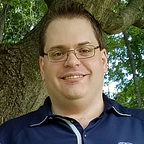Our History Is Our Survival
A former college history professor of mine once told me that “history is all around us.” I had him for more classes than I had any other professor when I attended college. As much now as it did over a decade ago, the reason why still warms my heart. In my article, “Following in an Advocate’s Footsteps,” I explained that memory retention is essential for those who are late to discover that they are autistic. As it turns out, we all need it every day.
I finally put into words something I have needed to write about as a mental health advocate for a very long time. The more I learned about what our lives as autistic adults are like, the more I realized the importance of history. But in school, few topics seemed to draw quite as much loathing or disinterest. Walk with me as I explore how your past as an autistic person is needed for the quality of your future.
In May 2010, I did something that a school guidance counselor had once refused to think I was smart enough to do: I graduated college with a bachelor’s degree. She refused to sign off on the required college prep courses for the start of junior high. My parents suspected it could have been because I had a diagnosis of attention deficit disorder. They advocated on my behalf, and eventually, I was given permission.
No child’s future should be so limited before they have the opportunity to follow their dreams. I know someone with cerebral palsy who requires round-the-clock care. Yet she is a brilliant writer with a beautiful mind. One of my professors seemed to torture his students’ hands by having us take exams in the blue book essay format. I always seem to press hard when I write. So, I dreaded his exams because they required so much writing.
This professor is someone from whom I would learn a great deal about history. However, the source of this lesson was not what he was teaching. It came from who he was as a person. In the first class of his I had, on the first day, this professor started with an unexpected orientation. He gave us a glimpse into his past by sharing what led him to be our professor. I was humbled by the journey he took and how indecisive he had been.
For the next two courses with him that I had, it mattered less to me about the arduous written essay exams. Something about his journey was so familiar to me. I felt a need to follow him. At the time, almost everyone I knew in my life seemed to have far less trouble finding their way than he or I did. It took 13 more years for me to discover why he may have been so relatable: I wrote my Monotropism Employment Theory.
At the start of 2023, for me, history was irrelevant to mental health. Then, in June, using my past history of denial as a suicide attempt survivor, I uncovered severe trauma from my late autism diagnosis. A few months later, in September, I used my past history of chronophobia and discovered what caused it: my neglected lack of economic integration. This was rooted in Dr. Damian Milton’s Double Empathy Problem Theory.
Suddenly, I was identifying problems that I did not know I had. With the factual knowledge I gained, I requested formal accommodations from my mental healthcare provider. I based my evidence on a theory that I wrote in December called my Monotropism Employment Theory. The theory connected years of my indecisiveness to trauma responses that were identical to those of a client of my case manager who had PTSD.
But on February 13th, 2024, my care provider forcibly discharged me despite my decisive evidence. My loyal followers on Twitter can attest to just how devastated I was. For all of 2023, though, I had done something that would be critical for contending that my discharge was, in fact, an act of unlawful discrimination. I recorded my own history in the very writing I published here on Medium. Then I remembered what my professor said.
History is all around us. He is right. Using my natural autistic talent for memory retention, I uncovered serious problems that even a major healthcare provider was failing to address. I uncovered systemic malpractice that has its roots in inadequacies, prejudice, and continuing neglect by the mental health profession itself. Our history is our survival. One look at all I have discovered demonstrates how accurate I am.
Whether the life experience is decades, years, months, or weeks old, our ability to retain even some of the most traumatizing memories is crucial to proving what society needs to change. We would not be able to learn as those such as Dr. Damian Milton and Kieran Rose have. Their research sheds valuable light on the serious daily struggles of autistic life. As an autistic person, by sharing your story, you provide a valuable service for your future.
Yet this professor, whose special interest in Irish history defined him so well, may have another lesson to teach me. Using my skill for pattern recognition, I recognize that he may have been autistic and was plagued by a similar conflict with monotropism, as I theorized. I know I can only speculate. Two things are certain: I am autistic, and I have a bachelor’s degree in history. I know what I am talking about.
Victories, failures, joy, and suffering — the present is an instant. One eye on the past prepares us for the future. Our history is our survival.
